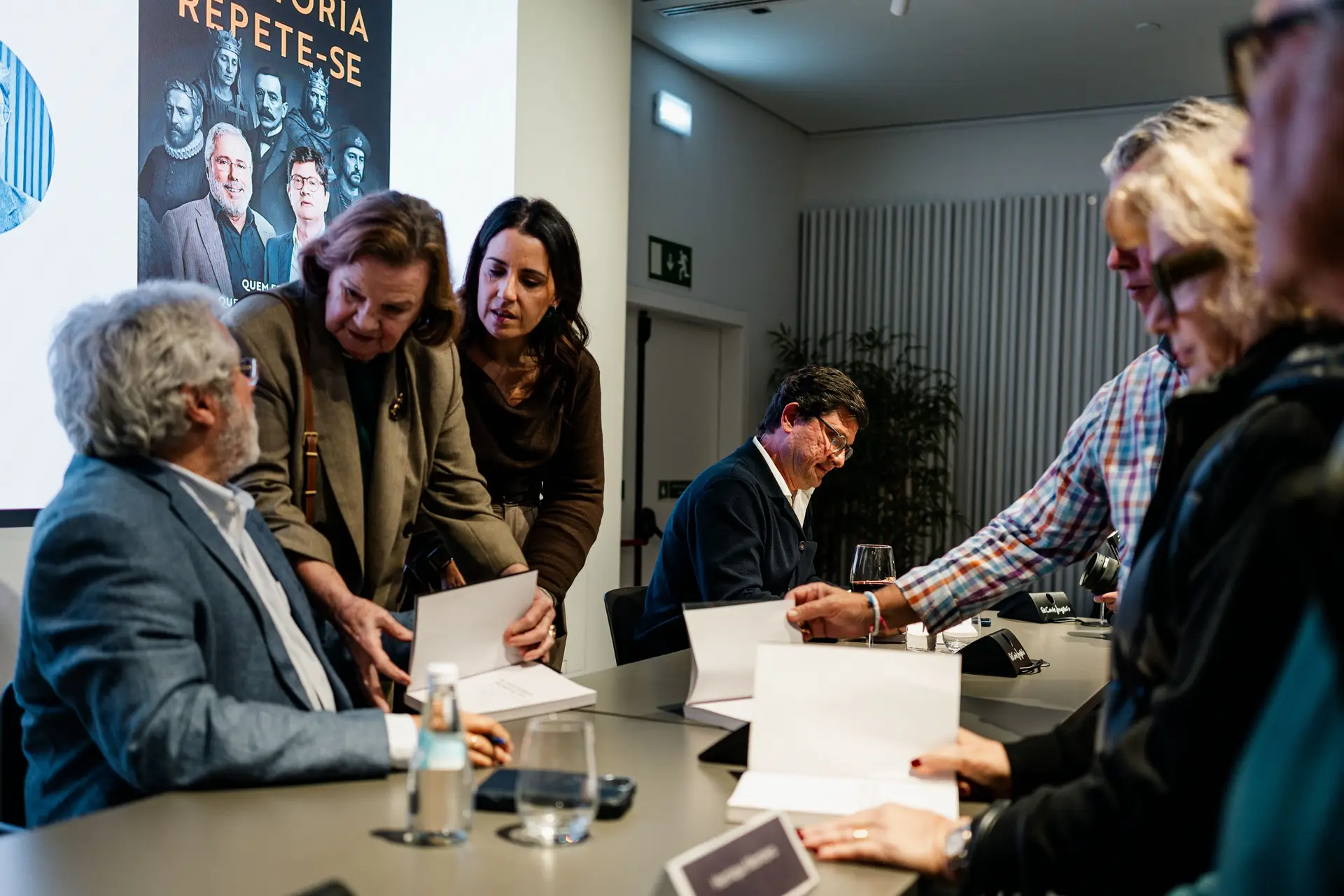The idea that History repeats itself spans centuries and appears in the works of various thinkers over time. Giambattista Vico, in the 18th century, defended historical cycles; Karl Marx, in 1852, left one of the most quoted phrases of all time: “History repeats itself: the first time as a tragedy, the second as a farce.” Naturally, this maxim was evoked by Henrique Monteiro, former director of Expresso, in the presentation of the book “A História Repeat-se”.
On November 10th, the Cultural Âmbito room at El Corte Inglés, in Lisbon, became too small to welcome everyone who wanted to attend the launch of the first book inspired by the Expresso podcast of the same name. The enthusiasm was evident: packed space, people standing and many others at the door, unable to enter.
The session was attended by the publisher Manuscrito and was moderated by journalist Ângela Silva, who led a very lively debate with authors Lourenço Pereira Coutinho and Henrique Monteiro. For almost two hours, we talked about the transformation of the podcast into book format and the importance of revisiting the past to understand the present.
José Fonseca Fernandes
With twenty chapters, the work covers decisive moments in the History of Portugal: from Viriato to D. Sebastião, from Marquês de Pombal to the 25th of April, passing through national episodes that continue to arouse debate and curiosity. A work that leads us to reflect on how past events shape our time.
The podcast “A História Repeat-se”, which gave rise to the book, has existed for almost three years and has gained a loyal audience with weekly episodes dedicated to different historical periods and themes, always with expert guests.
Now, this work gains new life in book format, transforming conversations into reading and memory.
José Fonseca Fernandes
More than a book launch session, it was also a moment to celebrate History and what unites us throughout the timeline. Between final questions from the audience, hugs and passionate comments, this idea became clear: There are unrepeatable contexts and protagonists, but the main virtues and greatest human defects span the centuries. As Mark Twain wrote, “History does not repeat itself, but it rhymes.”
José Fonseca Fernandes


